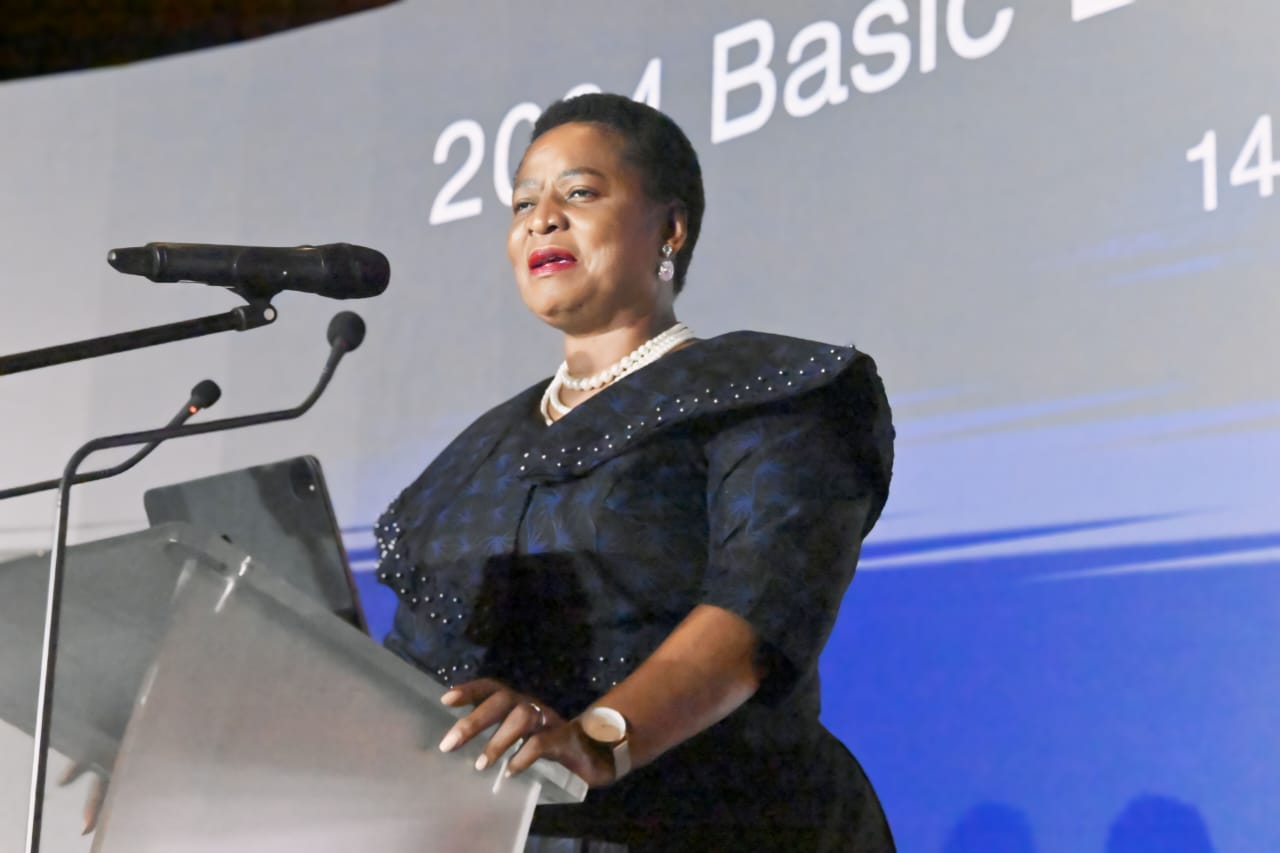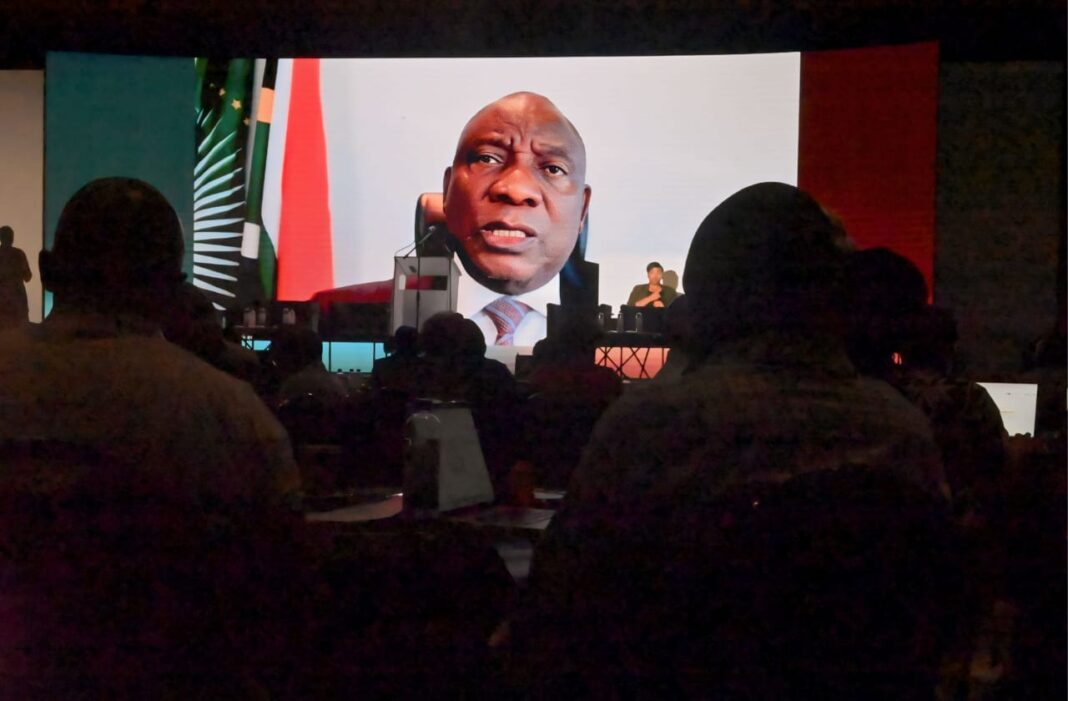Johnathan Paoli
President Cyril Ramaphosa has praised the progress of transformation in Basic Education, but said more needs to be done to meet sustainable development goals in line with the broader agenda across the continent.
Ramaphosa made an address virtually from Cape Town during the 9th annual Basic Education Sector Lekgotla which kicked off at the Birchwood Hotel and OR Tambo Conference Centre, eKurhuleni on Thursday.
The President started his address with a welcome note and said it was a distinct honour and privilege to address the 6th Basic Education Sector Lekgotla and that it was immensely gratifying to see the diverse support from the private sector, non-governmental organisations, academics and researchers, civil society, organised labour and parent associations.
“We have always maintained education was a collective activity, and we have always been grateful of the input, contributions and advice from key stakeholders in the sector,” Ramaphosa said

The President said education is a social issue, which links people to communities and society as a whole during a person’s life and that consequently, education must be seen as a societal undertaking.
The president thanked the gathering and said the colonial and apartheid legacies of education remained a long term problem that SA continues to live in the shadow of.
Ramaphosa highlighted the dedication of leaders during the struggle with regard to expanding education and facilitating the “doors of learning” being opened for all within the country.
He said the journey of renewal and reform is essentially ongoing and in its endeavor to transform past injustices, the government is working on a new curriculum that’s inclusive for all.
“As Government, we have continued to pursue pro-poor policies to systematically tackle the multifaceted factors impeding progress in basic education. These policies encompass the establishment of non-fee-paying schools—indeed, 80% of schools in our country do not require fees,” Ramaphosa said.
Ramaphosa confirmed that the Department of Communications and Digital Technologies has been instructed to prioritise connectivity for education and health and that the licensing of communication companies is now linked to their collaboration with the Department to enhance connectivity in schools and health facilities, a crucial step towards integrating technology into our educational and healthcare systems.
He said the government remained committed to eradicating the digital divide ensuring equitable opportunities for all learners, regardless of their location, social standing or financial situation.
“Our Government’s pledge to ensure that all learners have access to quality education is vividly illustrated through our achievement of equipping 435 public Special Schools with assistive devices, ICT tools and connectivity,” Ramaphosa said.
He said the initiative is a testament to the department’s commitment to inclusivity, ensuring every learner, irrespective of their abilities, is poised for success in an increasingly digital world.
Ramaphosa said the AU’s #Agenda2063 frameworks and international organisations such as UNESCO endorse the implementation of mother tongue instruction as a pivotal strategy for addressing literacy challenges, whose widespread support recognises the fundamental role of education in one’s first language in enhancing learning outcomes and improving literacy rates.
He added that he was profoundly aware of the pivotal role that mother tongue instruction plays in the fabric of democracy, and that it is a cornerstone of the essential reforms we undertake in basic education and speaks to the broader imperative of decolonising education.

The President said the department’s commitment to decolonisation and transformation remained urgent, ensuring that language is a bridge to knowledge and empowerment rather than a barrier.
“Our nation’s history reminds us of the profound impact of language as a tool of subjugation and oppression,” Ramaphosa said.
Early Childhood Development is a key priority for the Government, crucial to shaping the nation’s future and consequently, the development of the 2030 Strategy for Early Childhood Development Programmes, which outlines a comprehensive plan to achieve universal access to quality ECD programmes by 2030, he said.
“To ensure that we reach universal access to ECD programmes for children aged 3-5, we will need to provide quality access to an additional 830,000 children. This is over and above the 2.2 million children in this age group who are already accessing ECD programmes,” the president said.
In addition, the President outlined the reality that more than 9.6 million children have benefited from the national school nutrition programme, free textbooks, scholar transport, and child support grants provided by the Department of Social Development.
The concerted efforts signified the government’s commitment to enhancing the educational landscape of South Africa, ensuring that every child has the opportunity to succeed, irrespective of their background; reaffirming a dedication to fulfilling Mandela’s vision of education as the most powerful weapon one can use to change the world.
He also highlighted that despite universal access to basic education being at 98%, dropout and repetition rates are unacceptably high due to factors which include poverty, youth criminality, teenage pregnancy, and general violence in some of the country’s communities.
Ramaphosa said that pursuing of pro-poor policies to systematically tackle the multifaceted factors impeding progress in basic education, is an important priority which encompassed the establishment of non-fee-paying schools, of which 80% of schools in the country do not require fees.
In conclusion, Ramaphosa said that a doubling of efforts was required to ensure the nation’s children stand on equal footing, which meant all shall have access to public schools, the assurance of being taught by a qualified teacher, and the provision of ample workbooks, textbooks and stationery.
“It also means having the necessary learning tools, dignified sanitation facilities, clean running water, basic electricity, and a clean, welcoming environment that guarantees safety for both learners and teachers,” he said.
INSIDE EDUCATION







